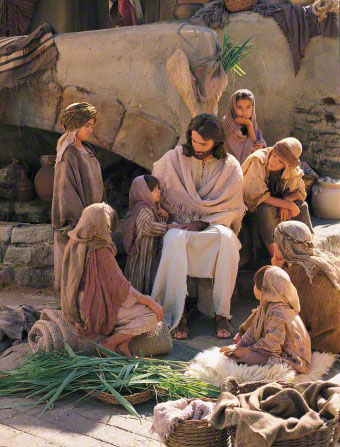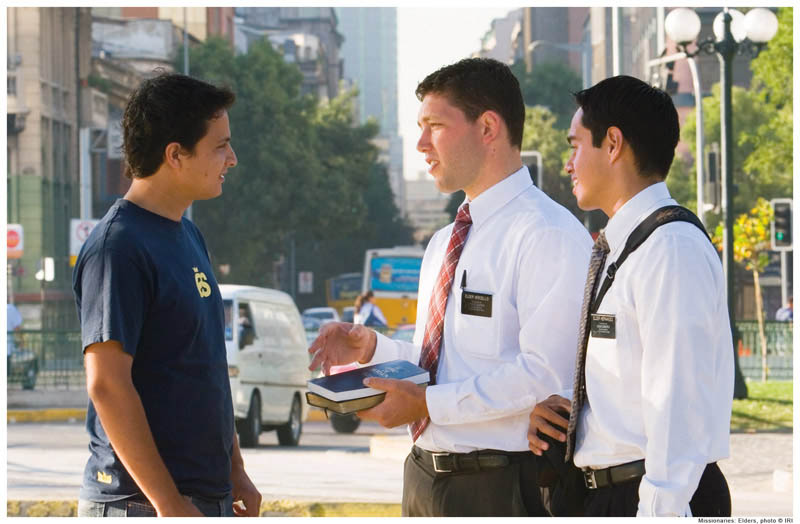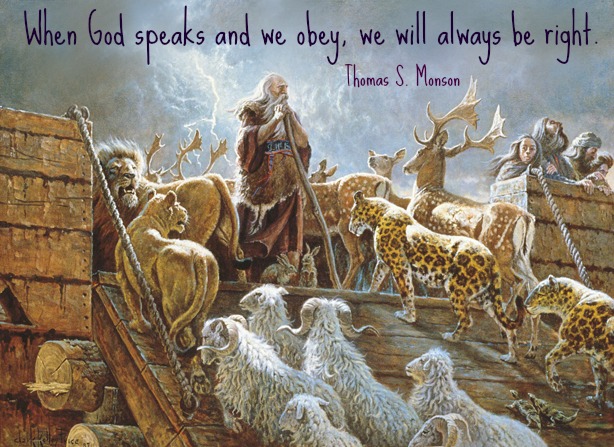I remember as a kid every time I told my parents, “That’s not fair!” their response was, “Life isn’t fair.” Now, as often happens, I find myself perpetuating this parental cycle and saying the same thing to my children. There are times in every person’s life when each one of us can say that something isn’t fair. Sometimes things are really bad, and sometimes they are just uncomfortable. But each time, it would be easy to say, “Hey, that’s not fair!” And the answer would be the same.
This phrase brings to mind the scripture Matthew 5:45, which says that God “maketh his sun to rise on the evil and on the good, and sendeth rain on the just and on the unjust.” On its face, this scriptural phrase seems fairly simple: that God blesses everyone. And it is. But it also has layers of meaning. If we look at the whole scriptural passage, Matthew 5:43-46, it reads,
Ye have heard that it hath been said, Thou shalt love thy neighbour, and hate thine enemy.
But I say unto you, Love your enemies, bless them that curse you, do good to them that hate you, and pray for them which despitefully use you, and persecute you;
That ye may be the children of your Father which is in heaven: for he maketh his sun to rise on the evil and on the good, and sendeth rain on the just and on the unjust.
For if ye love them which love you, what reward have ye? do not even the publicans the same?
From this scripture we can gain insight into the nature of God, the power of His plan for us and the importance of agency in that plan. And this knowledge helps us be better disciples of Christ.
The Nature and Love of God
The first insight that we gain from this scripture is about the nature of God and how much God, our Heavenly Father, loves us, His children. This scriptural passage is from a sermon given by Jesus Christ, the literal Son of God, who came to earth to show us the path to eternal life. But He also came to teach us about our Father in Heaven. Elder Jeffrey R. Holland explained,
Of the many magnificent purposes served in the life and ministry of the Lord Jesus Christ, one great aspect of that mission often goes uncelebrated. His followers did not understand it fully at the time, and many in modern Christianity do not grasp it now, but the Savior Himself spoke of it repeatedly and emphatically. It is the grand truth that in all that Jesus came to say and do, including and especially in His atoning suffering and sacrifice, He was showing us who and what God our Eternal Father is like, how completely devoted He is to His children in every age and nation. In word and in deed Jesus was trying to reveal and make personal to us the true nature of His Father, our Father in Heaven.
He did this at least in part because then and now all of us need to know God more fully in order to love Him more deeply and obey Him more completely.
The love that God has for us is almost unimaginable. President Dieter F. Uchtdorf said,
God does not look on the outward appearance. I believe that He doesn’t care one bit if we live in a castle or a cottage, if we are handsome or homely, if we are famous or forgotten. Though we are incomplete, God loves us completely. Though we are imperfect, He loves us perfectly. Though we may feel lost and without compass, God’s love encompasses us completely.
He loves us because He is filled with an infinite measure of holy, pure, and indescribable love. We are important to God not because of our résumé but because we are His children. He loves every one of us, even those who are flawed, rejected, awkward, sorrowful, or broken. God’s love is so great that He loves even the proud, the selfish, the arrogant, and the wicked.
Thus, to love as God loves, we must love everyone, even—and perhaps especially—those who for whatever reason don’t like us.
Being Born Again and Following the Savior
Next we learn what we need to do to follow the Savior. We must not only learn of Him but must also learn to follow Him in word and in deed. Elder Joseph B. Wirthlin taught,
… By definition a Christian not only professes belief in the Savior, but a Christian lives and acts according to the teachings and commandments of Jesus Christ. He taught, “Not every one that saith unto me, Lord, Lord, shall enter into the kingdom of heaven; but he that doeth the will of my Father.” Jesus also said, “If ye love me, keep my commandments.” He commanded us to pattern our lives after His. True disciples of the Lord must be “doers of the word, and not hearers only.”
This is where being born again comes in. Professor Andrew C. Skinner, at the time the executive director of the Neal A. Maxwell Institute for Religious Scholarship and professor of ancient Scripture at Brigham Young University, taught,
… Jesus commanded His disciples to love their enemies, to bless those who hurled curses at them, and to pray for those who despitefully used them. The reason is given in Matthew 5:45: “That ye may be the children of your Father which is in heaven.”
The original Greek wording of Matthew 5:45 connotes a rebirth, “so that ye may be born (genē) the sons [children] of your Father in heaven.” This idea parallels the doctrine of being spiritually born of God and receiving His image in our countenances, as taught in Alma 5:14. Disciples must reflect in their lives—in their behaviors and in their countenances—the distinguishing traits of the Great Parent of the universe in order to truly become His children and His heirs in every way (“The Nature and Character of God,” BYU Speeches, April 11, 2006).
Being born again begins with choosing to follow the Savior and continues with the decision to be baptized. Elder David A. Bednar said,
We are instructed to “come unto Christ, and be perfected in him, and deny [ourselves] of all ungodliness” (Moroni 10:32), to become “new creature[s]” in Christ (see 2 Corinthians 5:17), to put off “the natural man” (Mosiah 3:19), and to experience “a mighty change in us, or in our hearts, that we have no more disposition to do evil, but to do good continually” (Mosiah 5:2). Please note that the conversion described in these verses is mighty, not minor—a spiritual rebirth and fundamental change of what we feel and desire, what we think and do, and what we are. Indeed, the essence of the gospel of Jesus Christ entails a fundamental and permanent change in our very nature made possible through our reliance upon “the merits, and mercy, and grace of the Holy Messiah” (2 Nephi 2:8). As we choose to follow the Master, we choose to be changed—to be spiritually reborn. …
We begin the process of being born again through exercising faith in Christ, repenting of our sins, and being baptized by immersion for the remission of sins by one having priesthood authority.
Respecting Agency
This brings us to the part where we must respect the agency that God has given to mankind. Professor Skinner said,
As Jesus taught, patient love and tolerant restraint are great hallmarks of our Heavenly Father’s character and personality. “He maketh his sun to rise on the evil and on the good” (Matthew 5:45), meaning that righteousness and wickedness are not—cannot be—immediately and constantly rewarded or punished. Such constant interference in the lives of men and women would thwart the plan of salvation and the purposes for which earth life was designed: to allow individuals to exercise patience, walk by faith, and be tested.
This can be the most challenging part of being disciples of Jesus Christ. Elder Dallin H. Oaks taught,
God’s choicest blessings are clearly contingent upon obedience to God’s laws and commandments. The key teaching is from modern revelation:
“There is a law, irrevocably decreed in heaven before the foundations of this world, upon which all blessings are predicated—
“And when we obtain any blessing from God, it is by obedience to that law upon which it is predicated” (Doctrine & Covenants 130:20–21).
This great principle helps us understand the why of many things, like justice and mercy balanced by the Atonement. It also explains why God will not forestall the exercise of agency by His children. Agency—our power to choose—is fundamental to the gospel plan that brings us to earth. God does not intervene to forestall the consequences of some persons’ choices in order to protect the well-being of other persons—even when they kill, injure, or oppress one another—for this would destroy His plan for our eternal progress. He will bless us to endure the consequences of others’ choices, but He will not prevent those choices.
The goal is for us to become the person God wants us to become because we want to be like Him. Elder Oaks said,
… The Final Judgment is not just an evaluation of a sum total of good and evil acts—what we have done. It is an acknowledgment of the final effect of our acts and thoughts—what we have become. It is not enough for anyone just to go through the motions. The commandments, ordinances, and covenants of the gospel are not a list of deposits required to be made in some heavenly account. The gospel of Jesus Christ is a plan that shows us how to become what our Heavenly Father desires us to become.
The Key to Making Decisions
The key, then, is to learn to make decisions based on the commandments of God, not on what is popular or on what our friends think. If every time we did something right we got a spiritual gold star and every time we did something wrong we got a spiritual slap on the wrist, we would not learn to make decisions for the right reasons. It would be purely based on outward stimuli rather than inward desire. Eventually, our actions will have consequences. Elder Richard G. Scott said,
There are two patterns for making decisions: the first I will call decisions based upon circumstance; the second, decisions based upon eternal truth.
Each pattern is based on where our heart lies, or where our focus is. Elder Scott continued,
The guiding principle in the pattern of decisions based upon circumstance is to make choices according to the outcome desired rather than upon what is right or wrong. There is no use of an underlying set of standards to consistently guide those decisions. Each choice is made upon what appears to give the most desired result now. One who follows this path is left to his own strength and capacity and the support of others who can be influenced to act in his favor. Satan encourages choices to be made in this manner. It gives him the greatest opportunity to tempt an individual to make decisions that will be harmful even though they appear most appealing when made.
In time, one who makes decisions based upon circumstance is virtually assured to commit serious transgressions. There is no iron rod of truth to keep that person in the right way. He will continually be faced with many subtle temptations to make deviations from the commandments. Those choices are justified by arguing that they are not that bad, that they are more socially acceptable and provide a broader base of friends. A clever individual without foundation principles can at times acquire, temporarily, impressive accomplishments. Yet that attainment is like a sand castle. When the test of character comes, it crumbles, often taking others with it.
This is for those who love their friends and hate their enemies. Anyone can do that. That is easy. It’s more difficult to make decisions based on a higher law. Elder Scott said,
The second pattern, making decisions based upon eternal truth, is the pattern of the Lord. It will always lead you to make decisions guided by His plan of happiness. Such decisions are centered in doing what is right, not in first deciding the result desired. Choosing to do what the Lord has defined as right will, in the long run, always lead to the best outcomes. However, that pattern may require you to set aside something you very much desire now for a greater future good.
Our Eternal Reward
 This brings us to the last sentence in our scripture, “for if ye love them which love you, what reward have ye?” What reward (or rewards) are we seeking? The power of God’s plan for us is that we have been given the tools to choose for ourselves whether we will seek eternal life through Jesus Christ or, well, not. This includes loving everyone—in word and in deed. While this can be the more challenging course of action, it will also be the most rewarding. President Dieter F. Uchtdorf said,
This brings us to the last sentence in our scripture, “for if ye love them which love you, what reward have ye?” What reward (or rewards) are we seeking? The power of God’s plan for us is that we have been given the tools to choose for ourselves whether we will seek eternal life through Jesus Christ or, well, not. This includes loving everyone—in word and in deed. While this can be the more challenging course of action, it will also be the most rewarding. President Dieter F. Uchtdorf said,
When I think of the Savior, I often picture Him with hands outstretched, reaching out to comfort, heal, bless, and love. And He always talked with, never down to, people. He loved the humble and the meek and walked among them, ministering to them and offering hope and salvation.
That is what He did during His mortal life; it is what He would be doing if He were living among us today; and it is what we should be doing as His disciples and members of The Church of Jesus Christ of Latter-day Saints.
The power of God’s plan for us is that we can become like Him by following the example of His Son, Jesus Christ. Obedience to those commandments, including and especially the doctrine of loving all of His children, we are on the path to becoming like the Savior—and to seeing others as He sees them.






